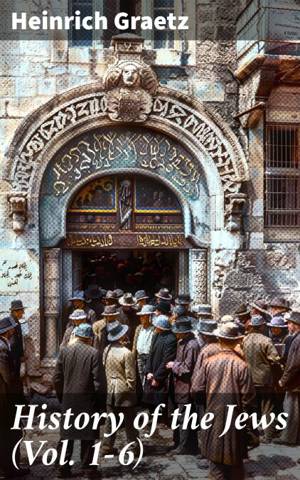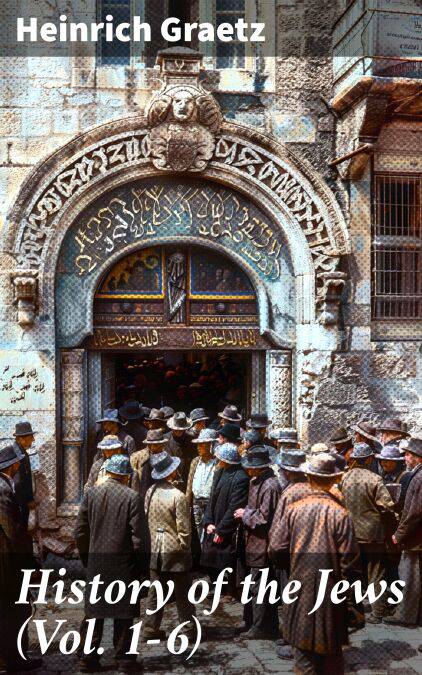
- Retrait gratuit dans votre magasin Club
- 7.000.000 titres dans notre catalogue
- Payer en toute sécurité
- Toujours un magasin près de chez vous
- Retrait gratuit dans votre magasin Club
- 7.000.0000 titres dans notre catalogue
- Payer en toute sécurité
- Toujours un magasin près de chez vous
History of the Jews (Vol. 1-6) EBOOK
From the Earliest Period to the Modern Times and Emancipation in Central Europe
Heinrich Graetz
Ebook | Anglais
0,99 €
Description
Heinrich Graetz's monumental six-volume work, "History of the Jews," serves as a foundational text in Jewish historiography, offering a sweeping narrative that traverses the cultural, social, and political landscapes of Jewish life from antiquity to the modern era. Graetz employs a scholarly yet accessible literary style, meticulously weaving historical analysis with rich narrative, reflecting the 19th-century intellectual climate that embraced a combination of Enlightenment ideals and romantic nationalism. His work challenges prevailing narratives and provides a context for understanding the complexities of Jewish identity through critical examination of primary sources, theological debates, and historical events. Born in 1817 in the Prussian city of Posen, Graetz was deeply influenced by his Jewish heritage and the tumultuous socio-political environment of his time, including the Haskalah, or Jewish Enlightenment. His education at the University of Berlin, alongside great thinkers of his time, shaped his vision of writing a comprehensive Jewish history that not only fulfills an academic need but also ignites a national consciousness among Jews. Graetz's commitment to articulating a Jewish historical narrative aligns with the aspirations of the Jewish community during an era marked by both Enlightenment and increasing anti-Semitism. For anyone eager to delve into the rich tapestry of Jewish history, Graetz's "History of the Jews" is indispensable. It offers profound insights and a nuanced understanding of the Jewish experience across centuries, making it a vital resource for scholars, students, and anyone interested in the intertwined threads of culture, religion, and identity. Graetz'Äôs work is not just a history; it is a declaration of the resilience and enduring spirit of the Jewish people.
Spécifications
Parties prenantes
- Auteur(s) :
- Traducteur(s):
- Editeur:
Contenu
- Nombre de pages :
- 2437
- Langue:
- Anglais
Caractéristiques
- EAN:
- 8596547778448
- Date de parution :
- 14-12-23
- Format:
- Ebook
- Protection digitale:
- Digital watermarking
- Format numérique:
- ePub

Les avis
Nous publions uniquement les avis qui respectent les conditions requises. Consultez nos conditions pour les avis.






